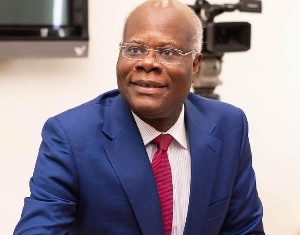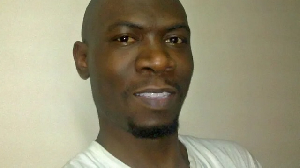- Home - News
- TWI News | TV
- Polls
- Year In Review
- News Archive
- Crime & Punishment
- Politics
- Regional
- Editorial
- Health
- Ghanaians Abroad
- Tabloid
- Africa
- Religion
- Election 2020
- Coronavirus
- News Videos | TV
- Photo Archives
- News Headlines
- Press Release
General News of Monday, 22 December 2008
Source: Public Agenda
Pantang Hospital inmates feed on sixty pesewas a day
“Hello, come in,” she says without lifting her head. She is busily trying to tear an A4 sheet into two to write something for a patient. In her frustration, she says “This hospital does not have money to print anything properly.”
Later, she realizes that her visitor was in fact there to listen to her challenges, and she wastes no time at all. She says the hospital has fought hard to be recognized on the desks of policy makers but that they need to act a lot quicker in favour of the hospital. Her name is Dr. Anna Puklo Dazdey, the Acting Specialist in charge of the Pantang Hospital and she is the only specialist the hospital can boast of.
If the availability of a large expanse of land was enough, the Pantang hospital would have no worries. The hospital, government owned, renders free services including the feeding of patients. Currently, patients are entitled to a daily feeding allowance of a meager sixty pesewas and Dr. Dzadey is justifiably unhappy about it.
“The money is too small,” she says. The families could help supplement the feeding of patients. But many do not pay them visits let alone bring them food. Dr. Dzadey says that Patients who depend solely on the sixty pesewas daily allowance are thus malnourished.
Meanwhile, there is a growing number of patients; especially because families fail to come for their rehabilitated patients. Substance abuse cases are also on the increase at the hospital. Statistics indicate that there was an 88% increase in such cases if January to November 2008 is compared with same period in 2007. Indeed, the hospital is in need of funding to be able to do a lot of other things aside feeding the patients. A ward, which was closed down some years ago, has been restored and management wants to use it for treating substance abuse cases. But the reopening of the ward has been stalled by the lack of funds to furnish it.
Inadequate staffing is another challenge Dr. Dzadey is worried about. Apart from herself being the only specialist at the hospital, there are only two each of young doctors and Special Assistants. The Occupational Therapy department in particular lacks the desired number of staff with requisite skills to help in patients recover quickly.
Also, Dr. Dzadey says that the hospital has for long been grappling with loose security for patients and staff as well as property on its vast expanse of land. Some of the patients could be violent. Restrainers – specially trained personnel – are needed to subdue such patients. “The security personnel must be specially trained, because you don’t want to hurt the person. He does not do it out of will. It is because of his unhealthy state of mind.”










